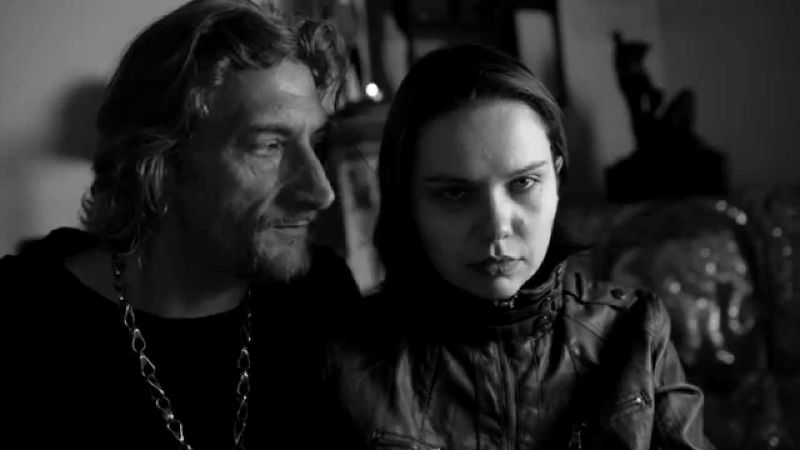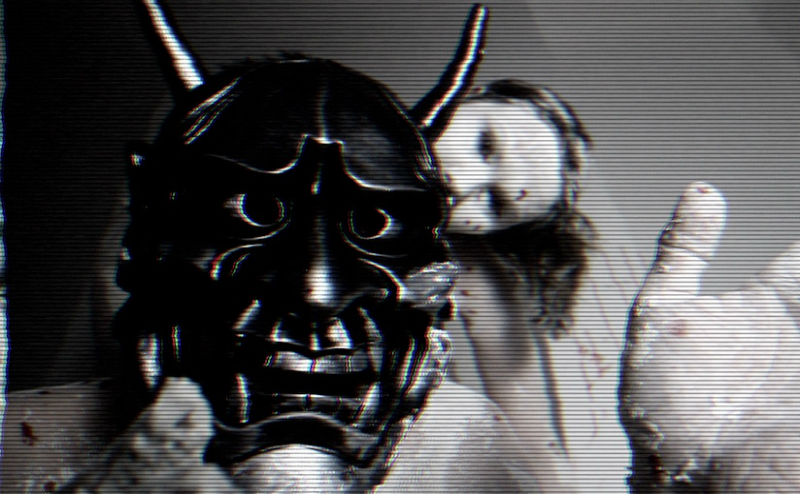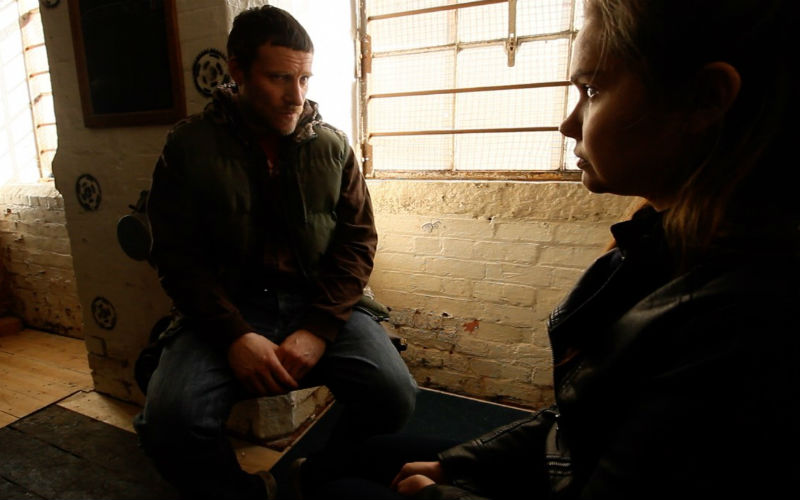This is not your average British indie shtick. The ruthless cop DS Blake (played by Andrew Tiernan, who also wrote and directed the film) investigates the cold case of a politician’s missing daughter, and he is soon caught up in a hurricane of dark secrets, lies, government conspiracy and backstabbing. But he’s determined to solve the mystery, even if he has to pay the highest price imaginable. Sounds vaguely familiar? Probably yes. It’s the level of careful detail within each frame and twist that makes Dragonfly special.
The tone of the narrative is somber throughout, so it’s only instinctive that Dragonfly should be filmed in black and white. It’s as if the director had decided to film in a dark environment where your cone cells responsible for colour vision are naturally switched off. The film has the thumping pace of an art film, without the unrelenting stamina of Hollywood thriller.
Dragonfly is a meditative and contemplative experience, not conducive to adrenaline rushes. Here the forensics are subordinate to the movie aesthetics. Its complexity lies is the nuanced black and white tones, and the carefully crafted photography. There are some particularly beautiful images of the London landscape and a park covered in snow.

Tiernan delivers a steady performance of a man tormented by the limitations of his job, and haunted by the prospect or not completing the task assigned to him. The cast also includes Wayne Norman as Blake’s sidekick Richard Price, Mark Wingett as the corrupt politician Francis Grosvenor (whose daughter has gone missing), Ann Mitchel as Francis’s wife and Shona McWilliams as a very ambiguous woman.
The film gradually blends in elements of film noir, detective story and occultism, but I wouldn’t want to get into too much detail without spoiling the movie twists. The story does however have some loose ends which at times are difficult to pierce together, particularly as you may get absorbed in the ingenious photography.
This is not Tiernan’s first film to deal with the subject of suspicion and mistrust in government organisations. His latest movie UK18 delves into the topic in a lot more detail, and the director has taken a lot more artistic freedoms: the movie narrative is partly devoid of chronological and logical linearity.
Dragonfly is available on VoD – just click here for more information. And don’t forget to attend the DMovies‘ screening of Andrew Tiernan’s latest movie the nightmare sci-fi UK18 on April 19th at the Regent Street Cinema – just click here in order to accede to our review of the film and here to purchase your ticket right now.










